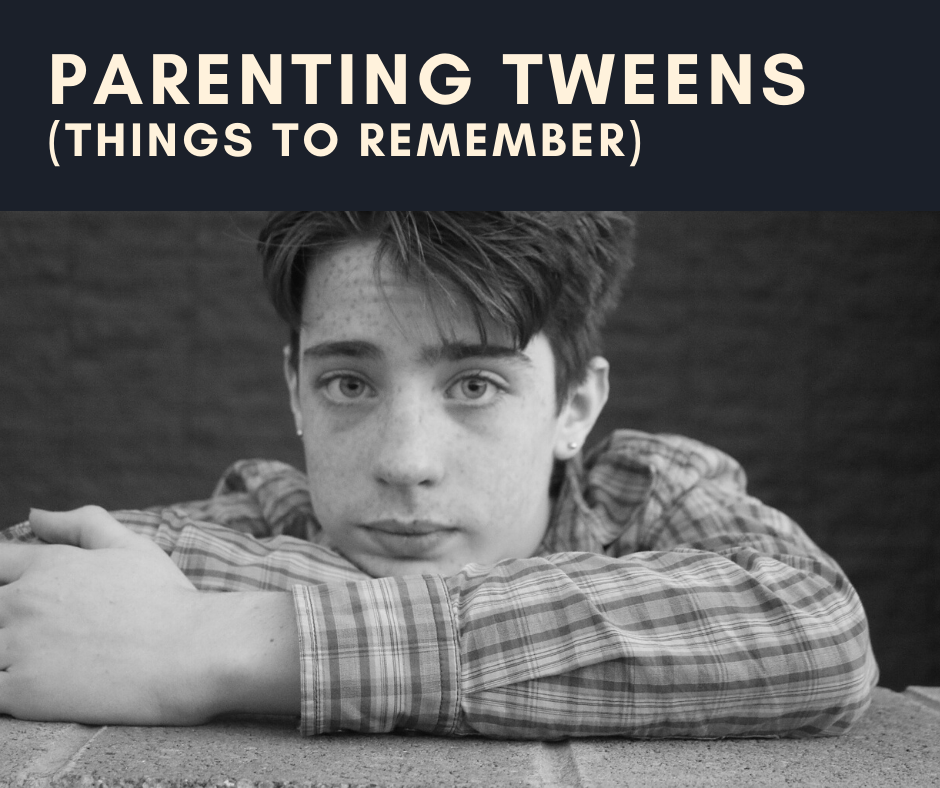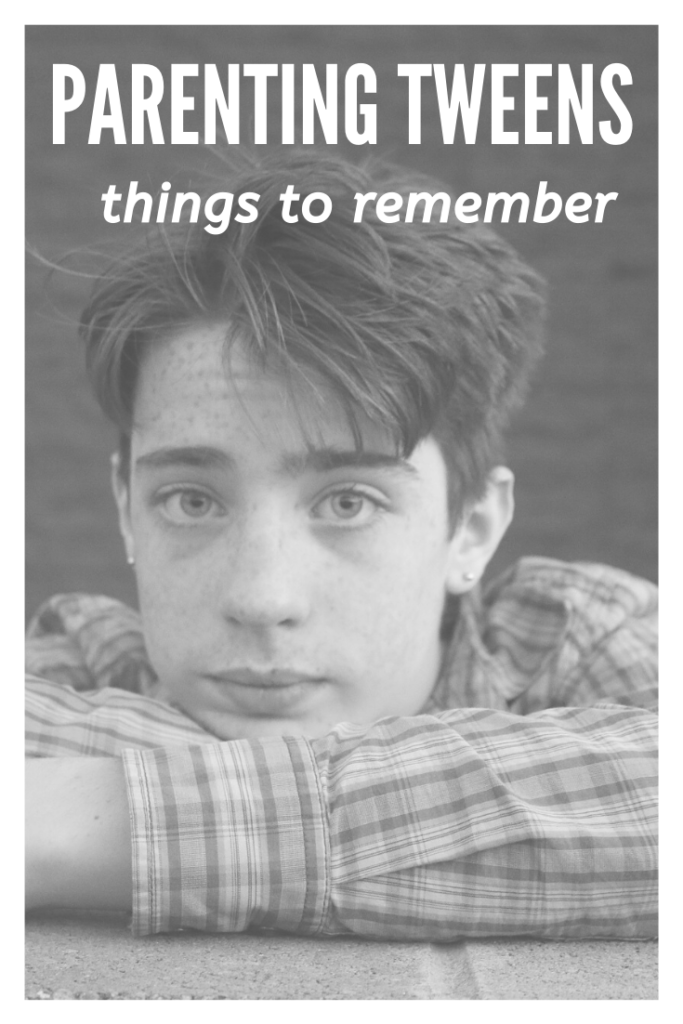It’s truly an amazing thing. One day, out of nowhere, the sweet cuddly, cooing, toddling, talking wonder wakes up: you look at this precious cherub in amazement, where did you baby go and who replaced it with this out of control, defiant, bundle of emotions? Congratulations, you have entered into the journey of the “tween” years.

Parenting Tweens
Early adolescence, if you choose to recall your own, is a time of changes: physical, emotional and social. Hormones are raging inside those still less than adult sized bodies and puberty rears it’s not so pretty head. Somewhere between the ages of 8-12 this “pre-teenager” has a 180 degree mood change and the war within their bodies spills over into the world around them. I would like to say these changes are gradual but having first hand experience I can honestly say if they are, it sure doesn’t feel like it.
Tweenagers experience multiple changes in rapid succession or even at the same time. It all seems to comes to a head at once, along with the blemishes that often develop on their angelic faces. (yeah they still look cute!) Their lives are turned upside down as they try to adapt to the many differences about themselves and their lives.
Body image is a big consideration for tweenagers. These pre-teenagers often look in the mirror and see someone who is not always well proportioned. Height and weight may not have evened out and therefore tweenagers often struggle with how they appear to others. It is a time to remind your tween that their body is still changing and to give themselves both time and a break! It is a time when eating disorders may surface if your pre-teen feels s/he is “too fat.” Gently guide your tweenager with encouragement to simply eat right and exercise regularly. In addition, their hormones are out of control as the begin to develop pubic hair and for boys facial hair and deepening voices; for girls they begin to develop breasts and menstruate. These physical changes can, at times, be a source of embarrassment and even competition with peers who may be further ahead or behind in their own development. Again, reminding your tween that everyone is different can ease their concerns.
Tweenagers may struggle with both anxiety and depression as they travel to adolescence. School work is more challenging, there are more expectations and responsibilities at home and school. Keeping the lines of communication open and watching for an increase in these issues will help you monitor if your tweenager is at risk.
As parents of pre-teens we face our challenge. Dealing with a child who is possibly more defiant than we had ever dreamed. Much of the behavior we see starting to surface with our tweenager is within the continuum of normalcy. It’s not uncommon for your child to tune you out and not listen, after all they have much more important things on their mind!
Making certain that you make eye contact and speak in a tone, not yelling or nagging, that states you mean business will help to get your messages across.
Remember that the tweenage years really are the time when your child is struggling to also discover who s/he is a person. They are looking for more independence and as a result will be more challenging, talking back is all too common. Remind your child what is acceptable and hold your ground on important matters. Your tween may be angry about it, but by not backing down you send the clear message that you are still in charge. This does not mean that you should not set fair boundaries. Be aware of whether your requests are able to be met by your pre-teen.
Cognitively and mentally your tweenager is also growing. There is more of an ability for complex thinking and expression of feelings and emotions. They tend to have a stronger sense of right and wrong. Though behavior does not always reflect these qualities in you tween, know that even though s/he also seems to suddenly resemble the two year old having a tantrum, your tweenager is capable of deeper understanding and reasoning.
Pin it for later:

Parenting tweens is almost as challenging as being one again! Know that with love, honesty and open communication, the adjustments for adolescence can and will be successful.
You might also like:


